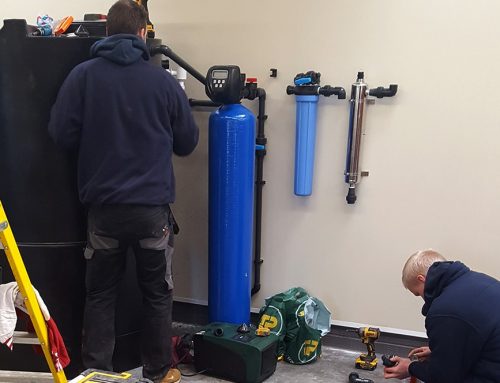The DEFRA Consultation for Abstraction closed on the 28th of March so we thought we would share our responses to the questions posed in the online survey.
For those unaware, the Environment Agency and DEFRA released a consultation on Abstraction Licence Reform which is the first time significant changes have been considered in approximately 60 years. Everyone with an abstraction licence will be affected by the proposed changes should they occur, including those with historical Licence of Rights (i.e.: not time limited). This affects both surface water and groundwater abstractions.
What are your views on the proposal to convert seasonal licences into abstraction permissions based on water availability?
There is merit in allowing seasonal abstractors to be able to abstract water at other times of the year should water be available at that time and if they can store it. There is little point in allowing, or being able to abstract, water if you cannot store or use it. It is completely dependent on the site specifics however where it is useful it would make sense to allow an abstractor this flexibility.
What do you think about the different proposed approaches to linking abstraction to water availability for surface water and groundwater abstractions?
Under the current system ‘plus’ it again makes sense to allow an abstractor to utilise available additional water should they be able to, which will not always be the case based on actual site specifics. However, gradually reducing abstraction volumes allowed is difficult for a business to manage. ‘Hands off flows’ work because the business understands that if it reaches a pre-determined level they can no longer abstract.
If you are working on the basis of gradually reducing abstraction a business will not know where it stands from one day to the next – there is no business certainty doing it this way. There is little point in applying a regulatory minimum level to some abstractors – they just don’t need it, even if climate change has an impact. This would just introduce business uncertainty e.g.: if a business wanted to expand and a lending bank learnt of the existence of this condition it may well put them off lending to the company as they perceive a risk which in reality, isn’t there. It needs to be applied on a case by case (licence by licence) basis.
The problem with the water shares option is that it is not clear what a share is. It is meaningless and confusing.
Would it be helpful if abstraction conditions required abstractors to gradually reduce their abstraction at low flows before stopping, rather than being just on or off?
This depends on notice periods given to abstractors which are unclear within the consultation documents. At the workshop we attended it was suggested that this may be 2 weeks’ notice prior to a reduction. The water cycle is extremely dynamic which is why we understand any notice given would have to be close to the actual reduction for environmental protection.
However, from a business perspective for a reduction to abstraction to be announced which then occurs very shortly afterwards, the approach is neither sensible nor helpful to business. Although the water cycle is dynamic, businesses cannot react to a reduction in abstraction level, which is often business critical, at short notice such as that provided by two weeks. Businesses require certainty and must have sufficient (long periods) of notice before changes are made. This is why an on / off system works with a licence condition. The business understands that they are either on or off rather than trying to manage a continually altering position at short notice.
Do you think the proposal to protect the environment using a regulatory minimum level at very low flows is reasonable? If not, how do you think we should protect the environment at very low flows?
Is this not similar to the existing HoF but applied to everyone? It seems unfair that in some instances where there is not a resource problem that a Hof or regulatory minimum level is applied to a licence. Even if climate change has an impact there are some catchments which will still be sustainable.
To protect the environment at very low flows HoFs should be applied, as they are now, to those abstractions which are the main risk. It is therefore necessary to look at each abstraction and the risk it poses individually. It cannot be a blanket approach to all abstractors.
What do you think of the proposal to require abstractors who discharge water close to where they take it from to continue to discharge a proportion in line with their current pattern?
No comments
How best do you think water company discharges should be regulated to provide reliable water for downstream abstraction without impacting on water quality objectives or constraining flexibility in water management?
On a case by case basis.
If you are an abstractor, how would these charging proposals affect your business?
Not an abstractor – but two part tariff for everyone makes sense.
To what extent would a system that charges abstractors partly on permitted volumes and partly on actual usage (ie a two part tariff) encourage abstractors to use less water?
Paying for only the water that you use makes absolute sense. There is little else in life where you pay for potentially having something and as long as the cost is minimised then this is a positive step.
Would quicker and easier water trading benefit abstractors now? How beneficial do you think it would be to abstractors in the future?
I’m not sure how much up-take there would be on this, especially in the relatively speaking ‘water rich’ north of the country where we work. There does not seem to be a trading requirement although we can appreciate it may be of benefit in areas of the country where water is more scarce. However even in these instances you would have to be very lucky to A. be in an area where there is someone willing to trade you water and B. is economic to do so. Trading water will not work in many groundwater systems which are completely localised.
To what extent do you see additional benefits in the wider range of trades that can happen under the Water Shares option, compared to the Current System Plus option?
Water Shares are just too confusing. Effective regulation is a simple process that everyone understands. At the workshop we attended even the presenters could not effectively explain how trading would work under the Water Share option. We still do not understand this and neither did anyone else at the workshop we attended. The current system ‘plus’ makes sense and seems like it will be a sensible way forward.
Do you agree that participation in abstraction trading should initially be limited to those with a direct interest in abstracting water?
YES and it always should be – you should have to prove to the regulator that you have an actual need! There is an inherent risk that if you introduce trading you could also introduce those looking to profit from trading which is not the aim of the exercise. The idea is to free up water and make more water available for everyone and the environment. We therefore also believe that there should be a set price for a given volume of water for water trading purposes, to limit the potential for profiteering.
Do you support our proposals for a more consistent approach to making changes to abstraction conditions? If not how would you improve the proposals?
It is not sensible to apply the same set of condition across all abstractors, catchments or sub catchments. Conditions should only be changed based on site specific information. You state that changing a condition is costly. Where is the evidence for this? Where possible abstraction licenses should have consistent conditions but it should always be based on site specifics not applied universally.
Furthermore the proposals to remove all time limits and then apply more blanket controls to all licenses including the removal of licenses of right, is controversial. In speaking to many of our clients who have abstraction licenses the thought of losing their licence of right is unacceptable as they are working with that licence against a long term business plan which means that although it may appear that they are not fully utilizing their licence they do in fact require it. Without review by the EA against site specific information this detail would be lost. Furthermore it is also something that they have become used to over a long period of time and the removal of a licence of right to a business could be very harmful.
What notice periods do you think would best balance the needs of abstractors and the environment?
From a business perspective any notice period needs to be as long as possible to facilitate the business being able to adapt to the change or find an alternative mechanism of supply. From an environmental perspective the opposite is probably true. The water environment is very dynamic and as such needs changes to occur at short notice. We would ask what notice period does the environment need? And then negotiate with business from there to find an appropriate position.
Do you support the proposal to remove the payment of compensation for changes to abstraction conditions and to phase out the collection of the Environmental Improvement Unit Charge through abstraction charges?
If an abstractor is utilising water on their abstraction licence, or have a business plan in place to use the water on their abstraction licence, it is unfair that this is removed without compensation although any compensation should be proportional to the loss incurred. This should be payable by all abstractors and although this means the requirement for all abstractors to contribute this is still correct. The actual impact of reducing abstraction charges via the loss of the EIU charge is probably only small.
Do you agree it is important to take measures when moving licences into the new system that would protect the environment from risks of deterioration?
Yes.
Would you prefer us to consider the risks in each catchment when designing the rules for moving licences into a new system, or should we treat all abstractors in the same way regardless of water availability?
All abstractors should not be treated in the same way, it could unfairly penalise these abstractors who are in a resource rich area. Rules for moving licenses into a new system should also not be done on a catchment basis they should be done on a site specific basis in consultation with the abstractor.
What would be the most effective method to calculate the new annual limits to be transferred into the new system (for example average annual, average peak or a combination of actual and licensed volumes)? And what assessment period should be used to calculate them?
There should not be a set rule associated to calculating any new abstraction limit. In some instances it will be appropriate to look at the last, say, 12 years of abstraction, other times it will be necessary to review the proposed limit with the abstractor – they may have a very good reason that they have not used all of their licence amount during a particular assessment period. It should be considered on site specifics in consultation with each abstractor. It is too simplistic to apply a blanket cover to every abstractor.
Do you support the establishment of a water reserve to support economic growth?
Theoretically a water reserve is a good idea allowing new abstractors to access water however, this contradicts the principals of water trading. If you are looking to encourage water trading there is an incentive for an abstractor to hold on to water (regardless of need) where as if you are setting up a water reserve to allow new abstractors to access water this will be tied up in other abstractors licenses. Essentially it needs to be one or the other with our preference for a reserve to available and water not held for trading purposes; it should only be retained on the basis of genuine requirements.



